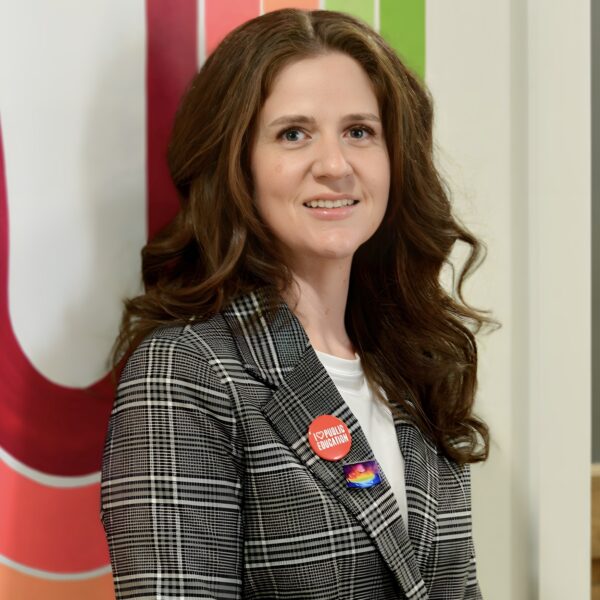I became a public education advocate when my eldest child was denied entry for kindergarten into our community public school due to the lottery system. Since then I have been working with the Edmonton Public Schools Advocacy Network to raise awareness surrounding the infrastructure crisis and the erosion of our Public Education system through the intentional defunding by the provincial government.
Professionally, I have completed an undergraduate degree in Law and have spent the majority of my career working with policy. In my current position with the University of Alberta I assist with policy, governance, and program development support within the College of Social Sciences and Humanities.
Personally, I am also the Mom of two amazing neurodiverse EPSB students and the wife of an Army Veteran. I believe in giving back to my communities and have volunteered on both my Community League Board and my children’s School Council.
I’m running to be the next Trustee for EPSB Ward C because our students deserve leaders who will fiercely defend the future of public education – and I have the proven track record to do just that.
Statement of beliefs
I believe that public funds belong in public schools.
I believe ALL children, regardless of background, ability, or identity deserve to be safe, seen and supported in our schools.
I believe teachers and education support workers are the experts on classrooms and need to be treated as such.
I believe the school board should have collaborative relationships with stakeholders and staff unions, not adversarial.
Priority areas
Revise and leverage policy to optimize current funding, given uncertain provincial support.
Partner with stakeholders to improve working/learning conditions within EPSB schools.
Protect marginalized students from harmful legislation and government overreach.
Views on funding
The current funding for education in Alberta is extremely troubling. We are essentially seeing an active attempt at privatizing our education system as we hold the lowest public funding in the entire country – yet the highest for private. Private schools, which charge tuition and can cherry pick their students, are profiting while our public schools are overcrowded and under-resourced. We are seeing public dollars being spent to attack our teachers rather than resolve the crisis in the classroom from years of no new schools. The weighted moving average (WMA) funding formula decimated our growing urban schools and the new adjusted enrollment method (AEM) formula is not the improvement we need. School boards need to be lobbying for a funding model that actually allows for all students to be properly funded so our schools have the resources they need to have successful classrooms.
How learning conditions can be improved
Unfortunately with the current government we cannot guarantee we will receive more funding. In the meantime we need to start collaborating with our classroom experts – our teachers and support staff – and start looking at ways we can adapt and change policies to make what funding we do have work better for our classrooms. We do not need fancy Task Forces with outside perspectives or special interests when we have the experts we need to work with right on the ground in our classrooms. The division needs to start working with our teachers and admin on the ground in our schools to address our students’ learning conditions.
How trustees and school boards can best support teachers
Trustees and school boards can best support teachers through active listening and collaboration. This will enable the board to truly advocate for what our teachers need by amplifying their voices. Involving teachers in decisions that impact their classrooms and prioritizing their well-being in policy is a priority for me. When we respect and empower our teachers, we empower our students. A culture that values and uplifts teachers is essential. When educators are seen, heard, and supported, everyone benefits.
Views on the new K-6 curriculum
I believe that if a comparative analysis was done across the country that Alberta’s new curriculum overall would score as poorly as our funding. As a parent I am already starting to see from my own children’s experiences the serious concerns regarding the content, perspectives, and sequencing I have heard about from many educators and experts. I am incredibly concerned about the lack of consultation and resources available for teachers. As a trustee I will be pushing for the board to lobby the government to address the crucial shortfalls of the new curriculum and to work with experts and teachers when revising.

